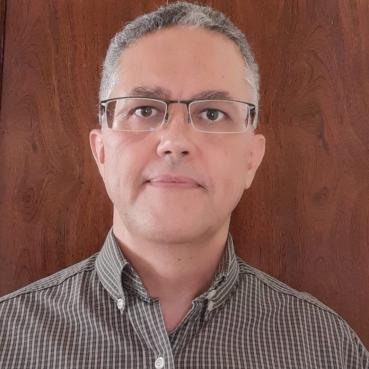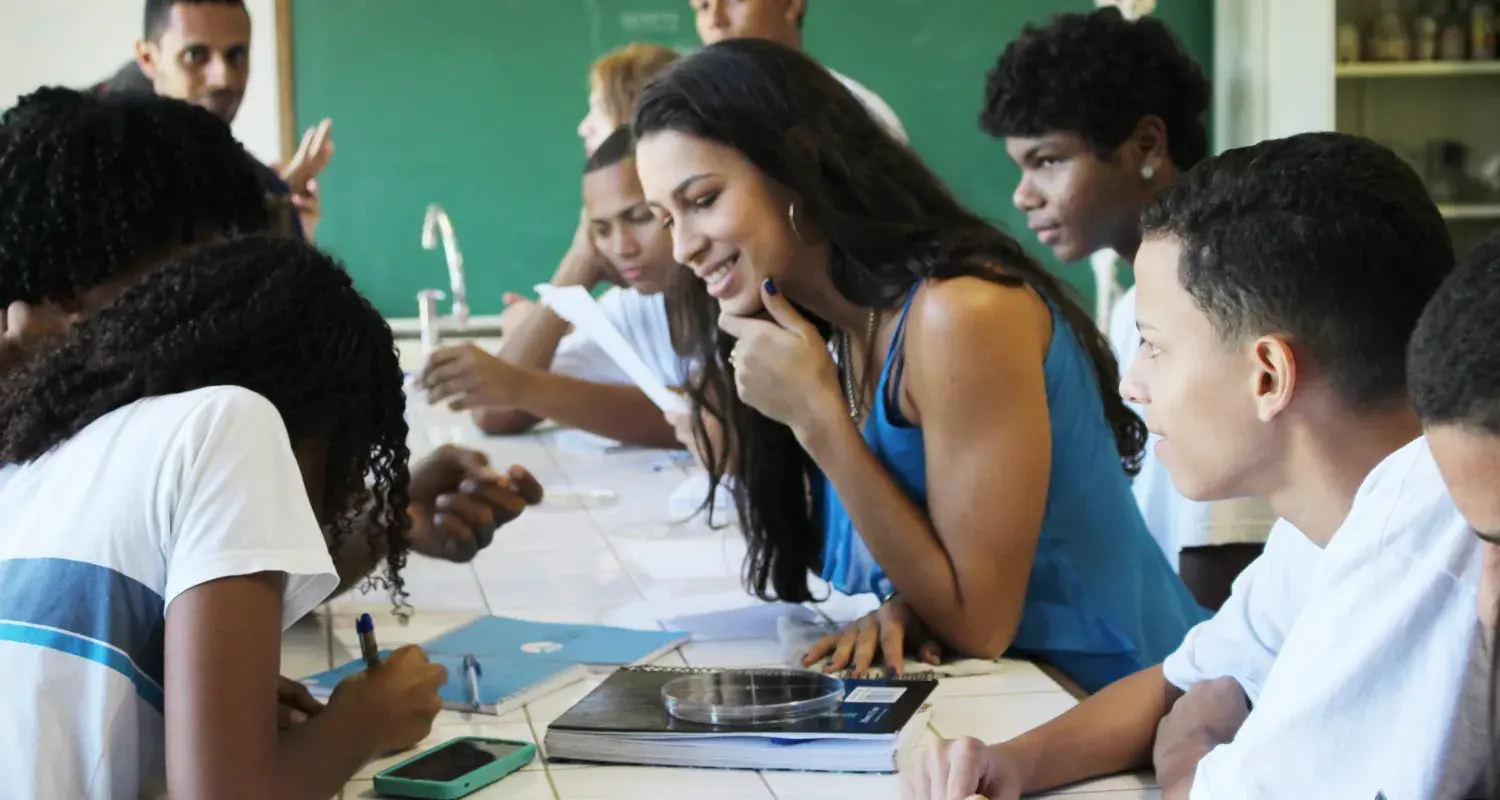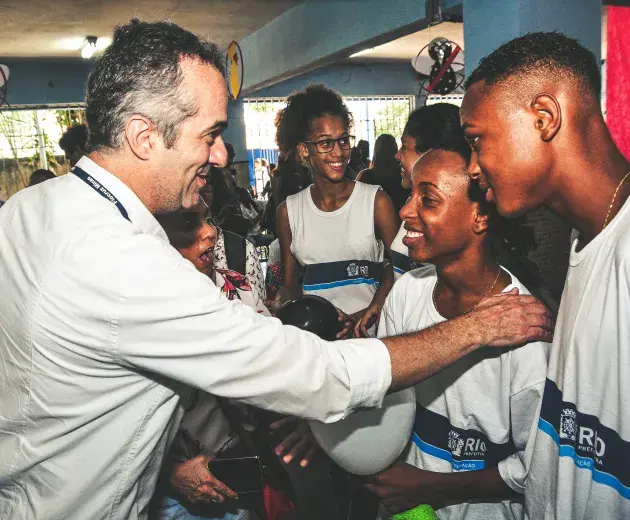Published Date: 11 May 2022
By Jessica Jones
A popular expression among Brazilians always comes up when talking about their country: "Brazil is one and many at the same time".
In Brazil it seems that everything is big. With a landmass of 8.5 million square kilometres, it is the fifth-largest country in the world and the sixth in terms of the number of residents. Its culturally diverse denizens make up just over a third of the total population of Latin America.
Therefore, the challenges in delivering services such as education, science and health are also great. When the World Mosquito Program arrived in the country with a pilot program to implement the Wolbachia method and help in the fight against mosquito-borne diseases, these challenges were seen as an opportunity for adaptation.
Empowering local teams
During these initial releases, the entire project was directly run by WMP staff. But when the Ministry of Health requested the expansion of the Wolbachia method to Campo Grande, Petrolina and Belo Horizonte, a large geographic area with huge populations, a new way of working was required.
"This [new] model is based on knowledge transfer, training and follow-up,” explains Diogo Chalegre, who is part of the World Mosquito Program’s Operations team in Brazil. “Our approach is to decentralise activities so that we can grow in an organised and controlled way, hand in hand with the community, volunteers and partners in each of the cities where we are located.”
This new operating model is a way to empower and strengthen the community itself. "We are empowering local teams of health, education and social leaders, as they promote our Wolbachia method, they carry out mosquito releases and even monitor the establishment of Aedes aegypti with Wolbachia in the territory."
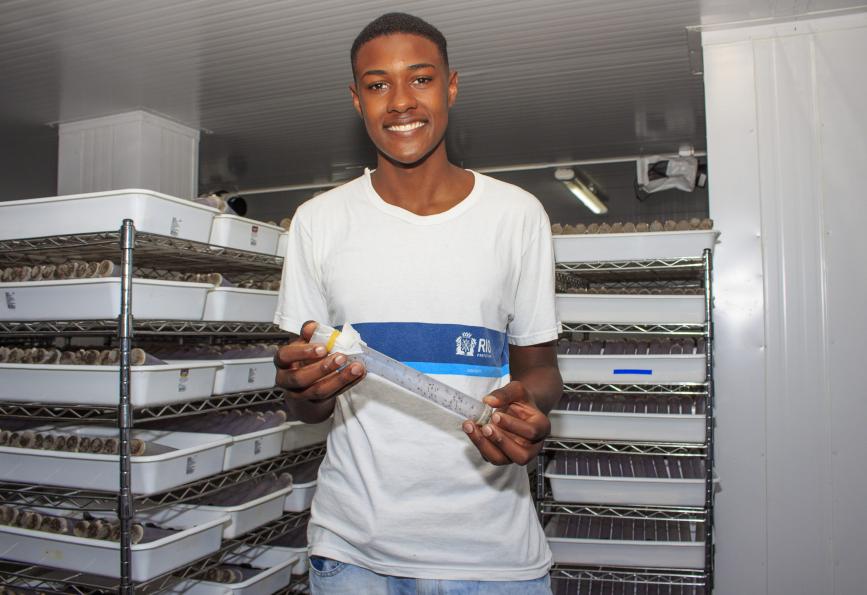
The ignition power of knowledge
This innovative new model relies on supporting communities to implement the Wolbachia method themselves. According to their work specialty (academic or public health), volunteers are trained to work directly with the community either in schools or in the health centres of the territories.
To support the educational volunteers, the World Mosquito Program created the "Wolbito at school" program. The program involves conducting a short science experiment in schools, under the direction of a teacher previously trained by the World Mosquito Program. The aim is to teach scientific concepts in a practical and interdisciplinary way, help explain how viruses are transmitted by Aedes aegypti, and show how the Wolbachia method is a tool to combat mosquito-borne diseases.
The “Wolbito at School” project also aims to raise awareness among students in the areas where the World Mosquito Program operates about socio-environmental issues and prevention actions used in the neighbourhoods where they live. The experiment allows students to follow, in the same classroom, the development stages of Aedes aegypti mosquitoes carrying Wolbachia, from the egg to the adult stage.
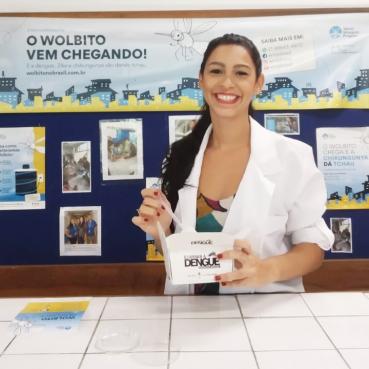
Taise Salgado, a science teacher in Rio de Janeiro was one of the teachers that included the World Mosquito Program’s “Wolbito at school” in the curriculum.
“My class was all made up of students who were lagging behind in school, that is, those who at some point had already failed in regular education. One of the pillars of work with this class was the rescue of self-esteem, and the World Mosquito Program gave us the opportunity to work on that” Professor Salgado explained.
“With each new discovery, my students realized their capacity and felt more and more confident to transmit this knowledge to other classes and to the communities where they lived. They became great allies in the projects to combat arboviruses.”
For Leonardo Viana, a history teacher in Belo Horizonte, this new method to prevent mosquito-borne diseases was a true discovery.
“I was coordinating the School Health Program in Belo Horizonte when we were invited to learn about the Wolbachia method. From the very first moment, I liked how the World Mosquito Program shared all the scientific knowledge in a very straightforward way. I also understood that the implementation in Brazil would be a work of great magnitude, and because of that it would demand the engagement of the community.”
Mr Viana is very optimistic about the participation of the Brazilian people. “It goes beyond the reduction of dengue cases, which is important of course. The experience of involvement with the science in their everyday life can awaken the desire and curiosity for new knowledge and preventive health self-care.”
